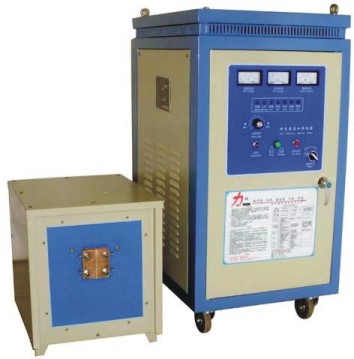- 07
- Oct
Induction heat treatment process of half shaft
Induction heat treatment process of half shaft
The engine power is transmitted to the wheels via the half shaft through the transmission and rear axle, so that the wheels can withstand torsion and impact. Early half shafts were quenched and tempered. Now most of the half shafts have adopted the mchakato wa kuongeza ugumu. The continuity of the half-shaft flange and the hardened layer of the rod, and the ratio of the depth to the diameter of the hardened layer of the rod, are the keys to improving the fatigue strength of the half-shaft.
Half-axis induction hardening generally has two kinds of scanning hardening method and one-time heating method. The scanning quenching method is suitable for mass production of multiple varieties; the one-time heating method is generally suitable for mass production on special machines. Compare productivity, quenching quality, energy saving effect and production cost. The one-time heating method is better than the scanning quenching method, but it requires a high-power power supply, a large-flow water pump, and the structure of a special sensor is also more complicated, so the investment cost is very high at one time, and it is only suitable for mass online production.
1. The half-axis scanning quenching method generally adopts a vertical general-purpose quenching machine or a special quenching machine. The structure of the half-shaft inductor must first heat the flange surface to the quenching temperature, and then scan and quench the rod and spline.
2. The one-time heating and quenching method of the half shaft is to heat the quenched area of the entire half shaft at one time, which is an advanced technology. It uses two rectangular effective rings with magnets on them to heat the rod part and the spline part. The effective ring of the flange part is semi-annular, and on the shaft end side, when the circumference of the semi-ring is too short, a suitable hardening pattern cannot be obtained. At times, a current collector is often attached.
The frequency of the power used by the half-shaft primary heating method is usually 4-8kHz, and the power is usually more than 400kw according to the size of the half-shaft heating area. Because the primary cooling area is particularly large, a large-capacity water pump is required, a polymer aqueous solution is used, and a quenching machine with a correction roller is used to complete heating, correction, quenching and self-tempering at one time. Domestic automobile manufacturers have successfully applied this process to production, and have achieved several-fold increase in productivity, greatly increased bending fatigue strength, and energy-saving effects.

